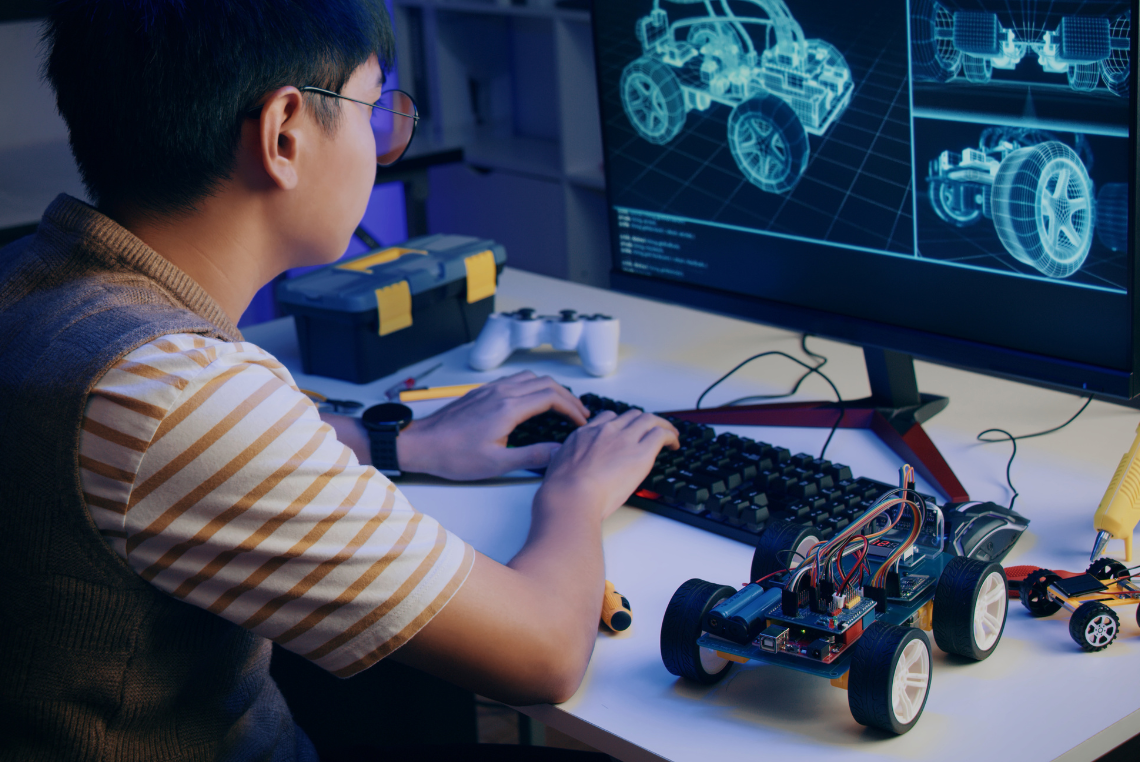- +91 22 23526372
- kgc@karangupta.com

In 2025, the convergence of Artificial Intelligence (AI) and Robotics continues to redefine industries and pave the way for futuristic innovations. As technology evolves, the demand for professionals skilled in AI and Robotics is skyrocketing. This blog explores the landscape of AI and Robotics courses, highlighting their significance, current trends, fundamental concepts, and who should consider pursuing these courses.
Here are some key highlights of AI and Robotics courses that are shaping the educational landscape in 2025:
| Course Name | Duration | Institution | Key Features |
|
AI and Robotics Certificate |
6 months | Stanford University |
Hands-on projects, AI applications in robotics. |
|
Master's in AI and Robotics |
2 years | Carnegie Mellon |
Advanced research opportunities, interdisciplinary coursework. |
|
Online AI Robotics Course |
Self-paced | Coursera |
Flexible learning, practical applications in real-world projects. |
|
Diploma in AI and Robotics |
1 year | Oxford University |
Comprehensive curriculum, focus on AI algorithms and robotics. |
AI and Robotics are witnessing several trends in 2025 that shape their applications and development:
1. Autonomous Systems: Advancements in autonomous vehicles and drones are leveraging AI to enhance navigation and decision-making capabilities.
2. Collaborative Robots (Cobots): Robots designed to work alongside humans, increasing productivity and safety in industries like manufacturing and healthcare.
3. AI-Driven Healthcare: Robotics integrated with AI for precision surgeries, patient care, and medical diagnostics.
4. Ethical AI: Focus on developing AI systems that are ethical, transparent, and accountable to address concerns around bias and privacy.
5. Edge Computing: AI algorithms are being deployed on edge devices to process data locally, enhancing real-time decision-making in robotics.
Learning AI and Robotics in 2025 opens up a world of opportunities:
Understanding the fundamental concepts of AI is crucial for anyone venturing into AI and Robotics courses. Here's a breakdown:
| Concept | Description |
|
Machine Learning |
Algorithms that enable machines to learn from data and make predictions or decisions autonomously. |
| Neural Networks |
AI models inspired by the human brain, capable of learning complex patterns and behaviors. |
| Computer Vision |
AI technology enabling machines to interpret visual information from the real world. |
|
Natural Language Processing |
Techniques for enabling machines to understand, interpret, and generate human language. |
|
Reinforcement Learning |
Learning process where machines learn by trial and error through interacting with an environment. |
The syllabus for AI and Robotics courses typically includes:
AI robotics courses integrate artificial intelligence principles with robotics, preparing students to design, program, and manage intelligent robotic systems.
These courses prepare individuals for careers in high-demand fields where AI-driven automation and robotics play a crucial role in innovation and efficiency.
Typically, AI and robotics courses are offered at the undergraduate or postgraduate level, requiring prior education in relevant disciplines such as engineering or computer science.
Skills include programming (Python, C++), understanding of algorithms, machine learning, and a strong grasp of robotics principles.
Graduates can work as robotics engineers, AI specialists, automation consultants, research scientists, or in roles focusing on AI applications in various industries.
Course durations vary: certificate courses can take a few months, while bachelor's or master's degrees can take 2-4 years depending on the program and institution.
